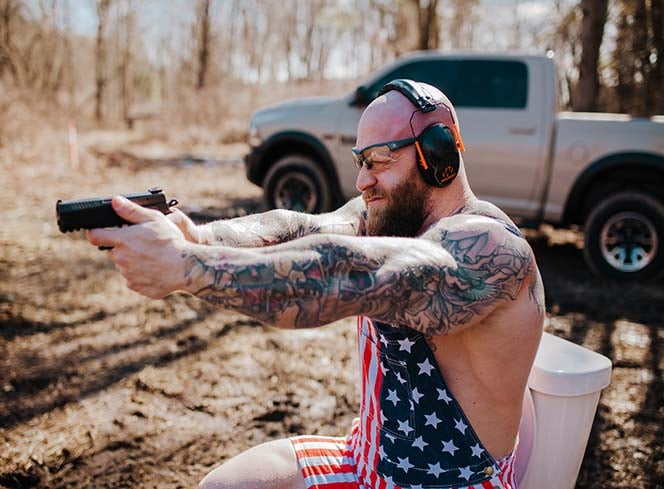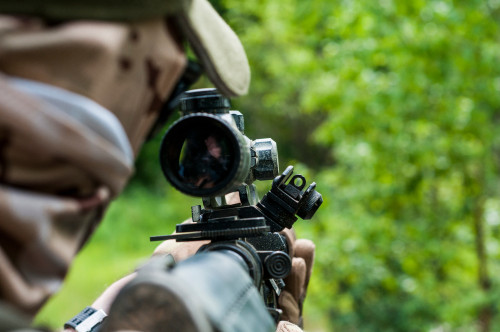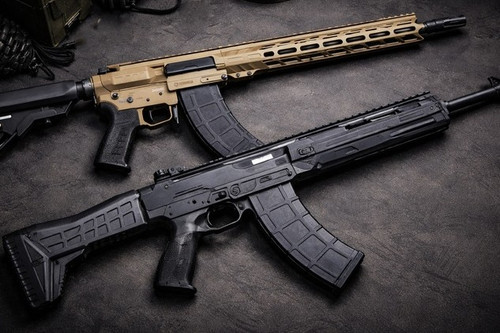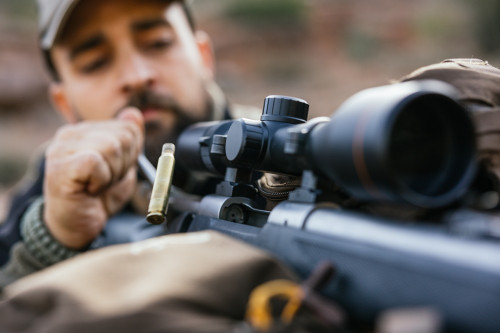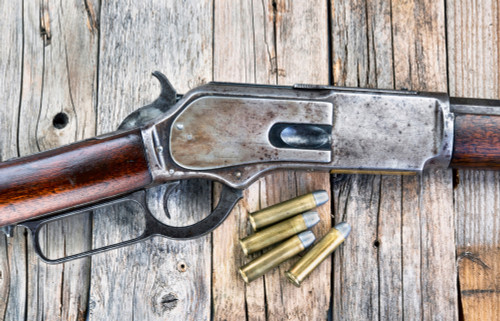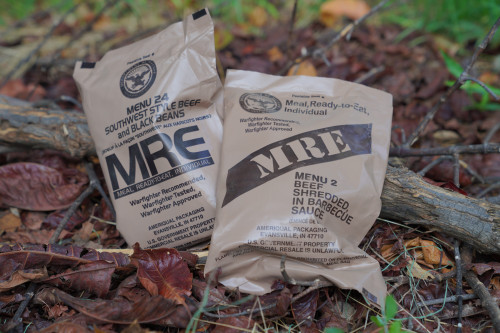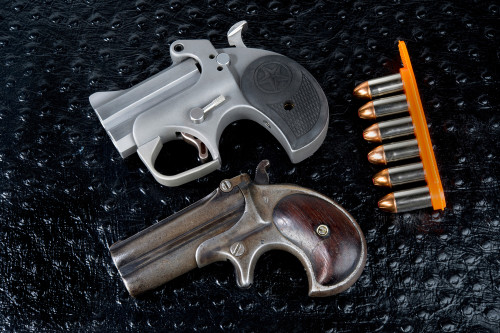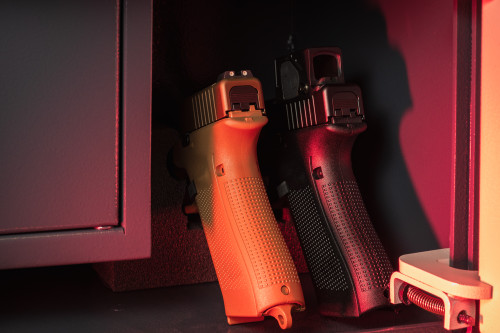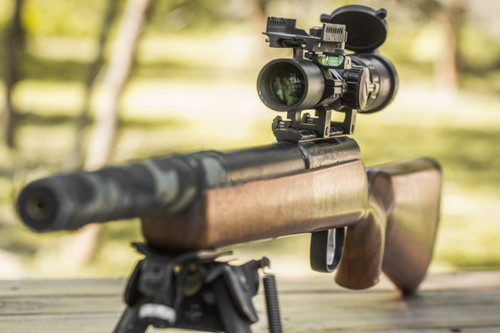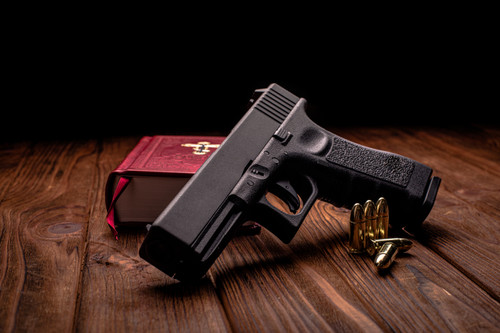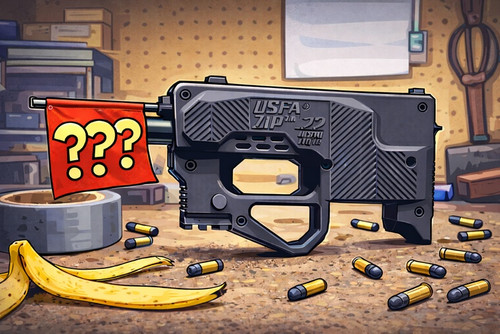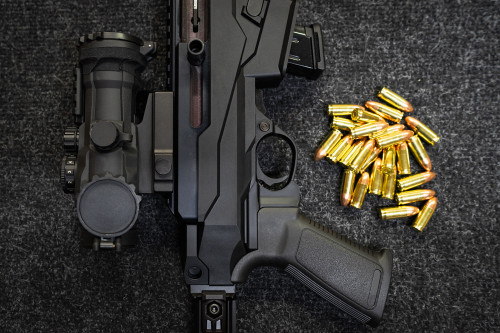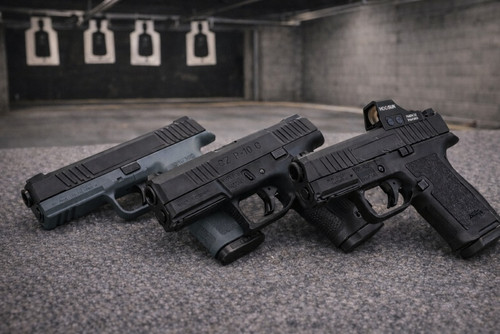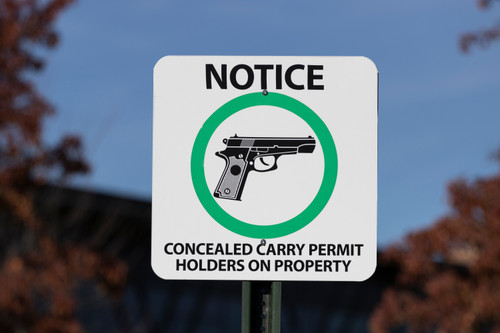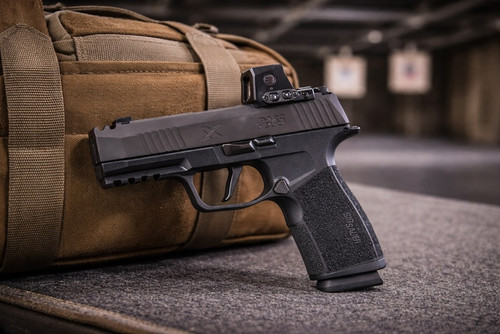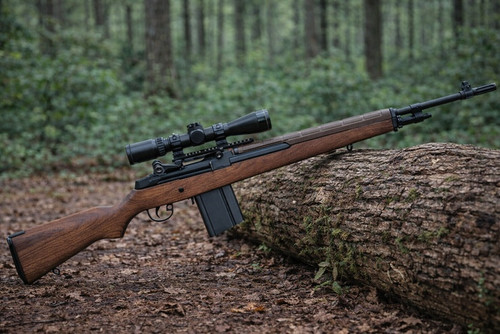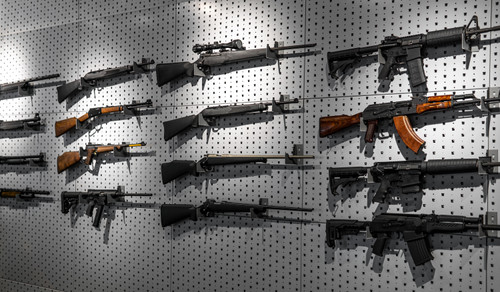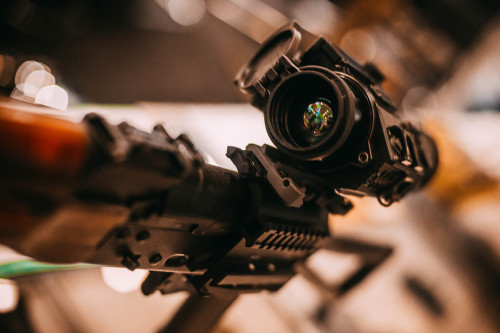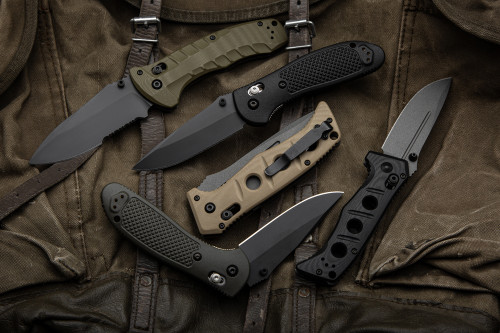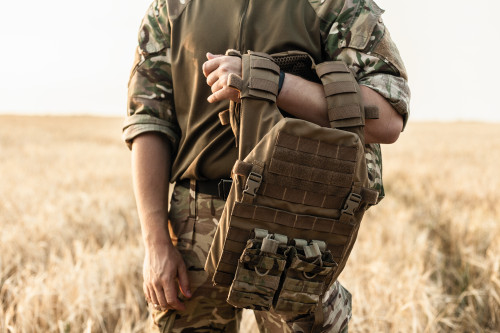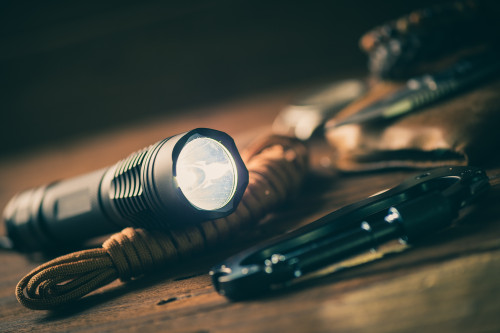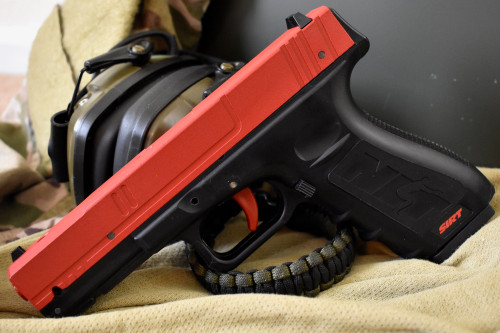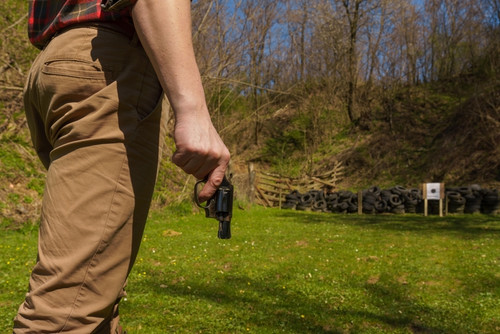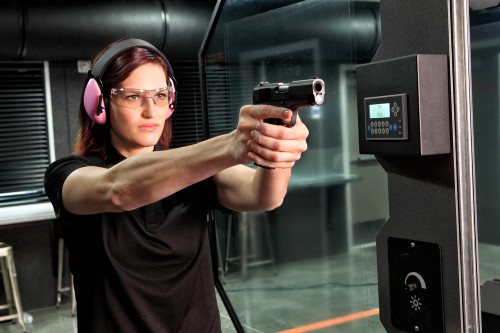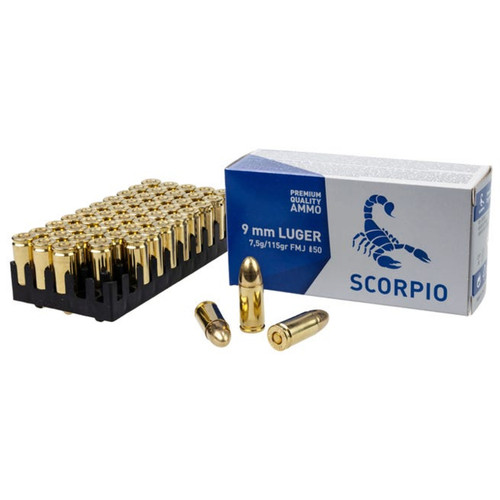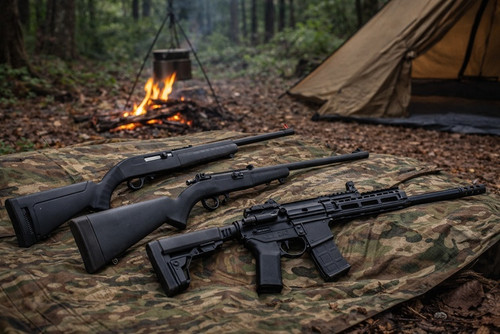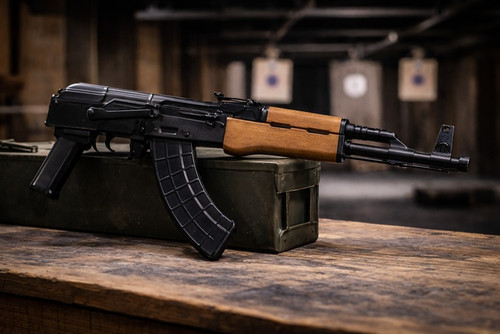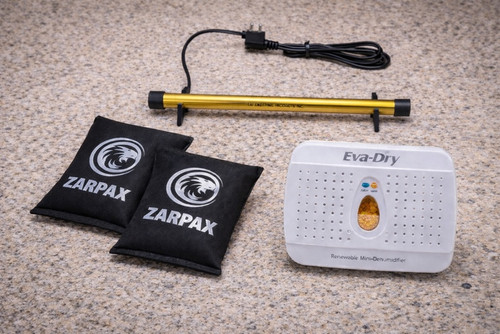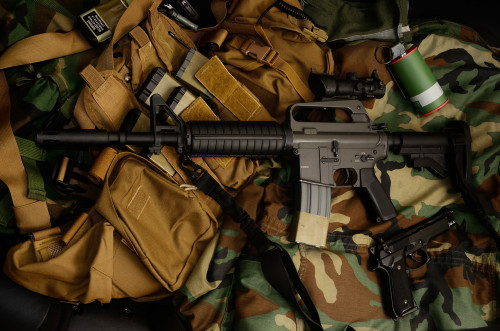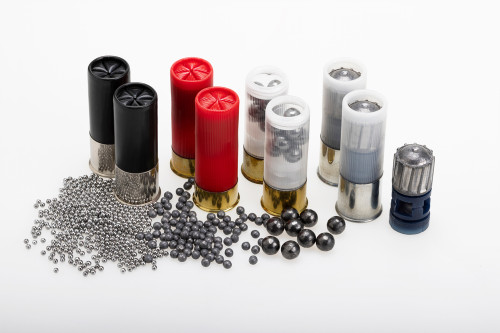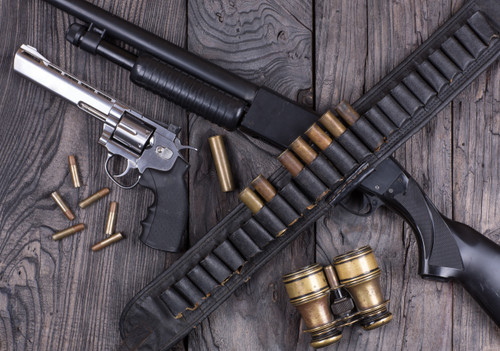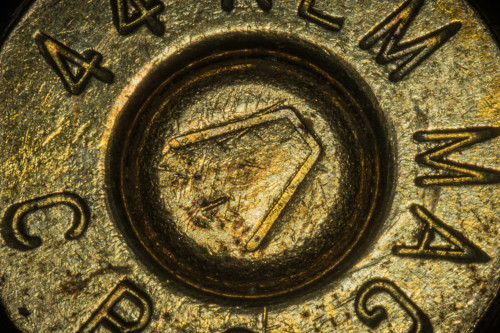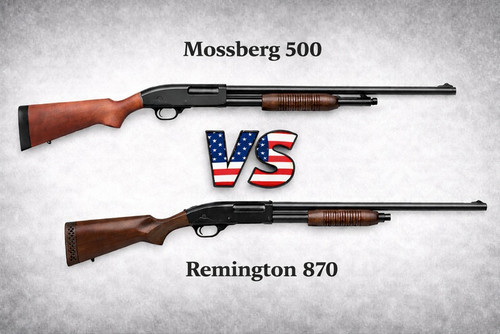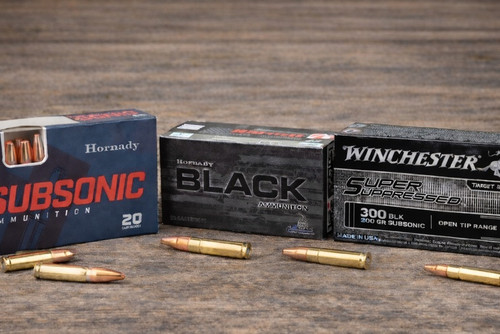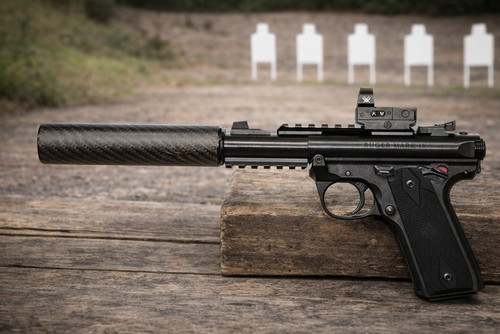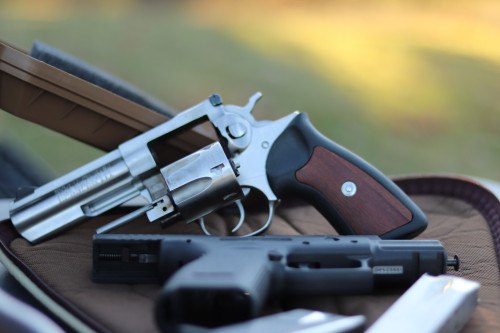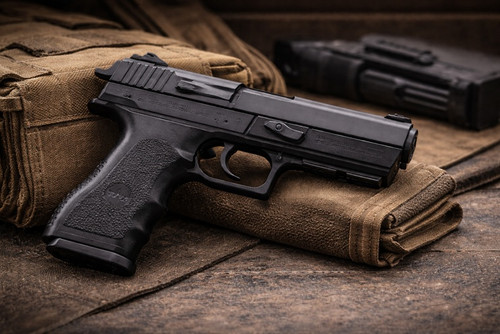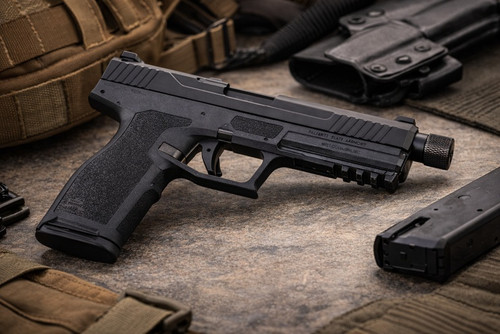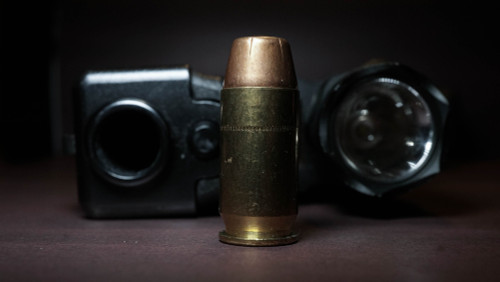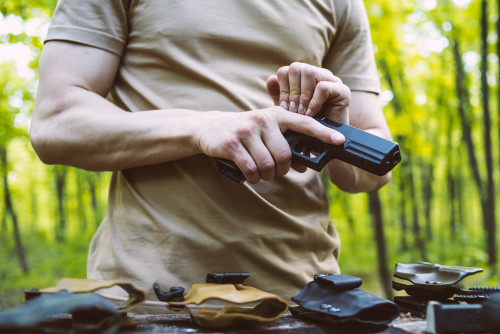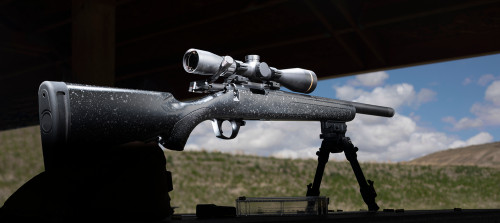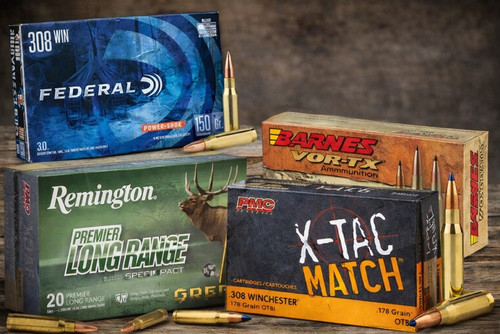As a responsible gun owner, you probably want to carry your gun in order to protect yourself, your family, your property, and your fellow law-abiding citizens if the situation were to ever call for it. However, despite your constitutional right to carry firearms, Illinois has some additional legal requirements you must follow in order to legally carry a concealed firearm in the state.
In this guide, we’ll cover everything you need to know about carrying a concealed firearm in Illinois, including reciprocity laws, how to obtain a concealed carry license, and much more. Illinois has some of the toughest gun laws in the country, so if you’re moving to the state, already living there, or just passing through, make sure you know the rules so you can stay out of trouble.
But remember, we’re not lawyers and we’re not giving legal advice. This guide is for informational purposes only. It’s critical to crosscheck everything we say here with actual law.
Here’s what you need to know:
2. Quick Stats
- Number of other state permits honored in Illinois: 0
- Number of states that honor Illinois permits: 29
- Percentage of people licensed for concealed carry in Illinois: 3.4%
- Number of issued licenses in Illinois: 435,000
- Minimum age to carry a concealed firearm in Illinois: 21
- Illinois concealed carry license validity: 5 years
3. Illinois Concealed Carry Overview
This section provides an overview of concealed carry laws in Illinois.
Carry Type
Carrying a concealed firearm in Illinois requires a Concealed Carry License (CCL) issued by the Illinois State Police (ISP). Concealed Carry refers to carrying a firearm concealed from view. The firearm could be on your person or in your vehicle, and it could be loaded or unloaded.
Open carry on your person or in your vehicle is prohibited, and Illinois does not allow constitutional or permitless carry. In Illinois, the only way for private citizens to legally carry a firearm in public is with a CCL.
CCL Details
To be eligible for an Illinois CCL, applicants must be 21 years of age or older, must possess an Illinois Firearm Owners Identification Card (FOID), and must complete a 16-hour firearms training course with a state-approved instructor. Details on how to apply are described below.
In Illinois, your CCL is linked to your driver’s license, which means that any law enforcement officer who runs your driver’s license will be notified that you’re a CCL holder. However, the concealed carry registry isnot available to the public.
Issue Type
Illinois is a shall-issue state, which means that if an applicant meets the requirements, the ISP must issue the CCL. This is opposed to a may-issue state, in which the issuing authority can reject any application based on their own discretion.
However, the ISP retains the right to reject CCL applications for those deemed a danger to public safety or to themselves. Applicants can appeal this decision to the CCL review board.
Non-Resident Permit
Illinois may issue a CCL to a non-Illinois resident, but only if the state of origin has firearm laws that are substantially similar to those of Illinois. Currently, these states include Arkansas, Idaho, Mississippi, Nevada, Texas, and Virginia.
Local Preemption
Laws regarding firearms and concealed carry are specifically reserved for the state, which means local ordinances cannot supersede laws imposed at the state level. For example, Hooppole (pop. 201) can’t just declare permitless carry in their town. State firearm laws override anything established at lower levels of government.
Red Flag Law
Illinois has a Red Flag law, which allows a family member or law enforcement officer to petition the ISP to prevent someone from possessing a firearm. If approved, the named person must surrender their firearms, FOID, and CCL to the ISP for up to 6 months.
4. Reciprocity
Reciprocity refers to whether a state honors a CCL from another state. Illinois does not honor CCLs from any other state. Non-residents in Illinois must apply for an Illinois CCL in order to legally carry a concealed firearm.
States With Full Reciprocity
These states fully honor the Illinois CCL:
- Alabama
- Arkansas
- Georgia
- Idaho
- Indiana
- Minnesota
- Mississippi
- Montana
- Nebraska
- Nevada
- New Hampshire
- North Carolina
- Ohio
- South Dakota
- Vermont
- Virginia
- Wisconsin
States With Restricted Reciprocity
These states honor the Illinois CCL but with certain restrictions:
- Arizona
- Alaska
- Iowa
- Kansas
- Kentucky
- Maine
- Michigan
- Missouri
- Oklahoma
- South Carolina
- Tennessee
- Texas
- Utah
- West Virginia
- Wyoming
States Without Reciprocity
These states do not recognize the Illinois CCL:
- California
- Colorado
- Connecticut
- Delaware
- District of Columbia
- Florida
- Louisiana
- Maryland
- Massachusetts
- New Jersey
- New Mexico
- New York
- North Dakota
- Oregon
- Pennsylvania
- Rhode Island
- Washington
5. Rules for Buying a Gun
These are the rules and laws about purchasing a firearm in Illinois.
Purchase Permit
An Illinois FOID is required to buy a handgun in Illinois, and the seller is required to verify the FOID before making the sale. The seller must contact the ISP to verify the FOID of the buyer and receive a transfer approval number.
However, a purchase can be made by a non-FOID holder as long as it takes place under the supervision of a federally-licensed firearm dealer (FFL). Other exceptions to the FOID requirement include a transfer among family members or a temporary transfer while residing in the home of an unlicensed person.
[430 ILCS 65/3(a-15)(2) & (6)]
Background Checks
All handgun sales in Illinois (even private sales) require a background check for the buyer, including those possessing a CCL. Starting in 2024, this requirement will extend to rifle sales as well. Handgun transfers among family members are exempt from the background check requirement.
Waiting Period
All gun sales in Illinois require a 72-hour wait before the gun can be retrieved by the buyer.
Registration
Handguns are not required to be registered in Illinois.
Minimum Age
You must be at least 21 years old to buy a handgun in Illinois. The minimum age to purchase a rifle is 18 years old.
Assault Weapons
As this guide is focused on concealed carry, assault weapons (as defined in Illinois) are not relevant here. However, it’s worth mentioning that assault weapons have been banned in the state (though the ban is currently under appeal). In Illinois, an assault weapon is defined as a semi-automatic, center-fire rifle that accepts a detachable magazine (e.g., AR-15).
6. Rules for Carrying a Gun
These are the official rules and laws about carrying and possessing a firearm in Illinois:
Locations
Even if you have a valid CCL, there are specific limitations about where you’re allowed to carry a concealed firearm in Illinois.
Dwellings & Private Property
Yes. You can legally store and possess firearms in your own house, on your own property, or at your business. No permit or additional license is required.
Prohibited Areas
No. This might seem obvious, but it’s worth pointing out. If a sign prohibiting firearms is clearly posted near the entrance of a building, the CCL holder must obey. Your CCL does not supersede a clearly posted prohibition, and a violation constitutes a misdemeanor.
Vehicles
Yes. Your CCL gives you the right to possess a concealed firearm on your person as well as your vehicle. If you are a non-resident traveling through Illinois, and you are legally able to possess a concealed weapon in your vehicle in your home state, you can legally do so in Illinois. If you plan to stay in Illinois for an extended period but do not plan to become a resident, we recommend applying for a non-resident Illinois CCL.
However, if non-residents leave their vehicles, they cannot carry their firearms beyond the immediate vicinity of their vehicles. They must lock the gun in the trunk or other secure area.
Roadside Rest Areas
No. You’re not allowed to carry a concealed handgun at roadside rest areas in the state of Illinois, even if you possess a CCL.
National / State Parks, Forests, and Wildlife Management Areas
Yes. You can carry a concealed handgun in most national and state parks, forests, and wildlife management areas in Illinois. However, pay attention to postings specifically prohibiting concealed carry (which supersedes this rule).
Nature Preserves & Play Areas
No. You’re not allowed to carry a concealed handgun in Illinois Department of Natural Resources (IDNR) nature preserves or children’s play areas.
Bars & Restaurants (with Alcohol)
No. You can’t carry a concealed firearm in an establishment that makes more than 50% of revenue from the sale of alcohol (e.g., a bar). How can you know if the establishment meets the criteria? If you have to ask, then this is probably a place you’re prohibited from carrying in.
Hotels
Yes. If there is no local ordinance and the hotel doesn’t have a posted policy, you’re allowed to carry a firearm into a hotel (assuming it is unloaded and stored in a case). When in doubt, contact the hotel beforehand to ask about specific policies.
Employee Parking Areas
Yes. This specifically refers to being able to transport a firearm from somewhere in the passenger area of a car to the trunk if you happen to be parked in a place that otherwise prohibits concealed carry. It gives you the leeway required to store the gun securely in the trunk.
Duty to Inform Police
In Illinois, you do not have a duty to inform police or other law enforcement officers that you’re carrying a concealed firearm. However, if they ask, you are required to tell them. The point is that you’re not legally required to volunteer that information during a police interaction.
Carrying While Intoxicated
No, you are not allowed to carry a concealed firearm while under the influence of alcohol, drugs, or anything else that could impair your judgment. This includes legal marijuana. Even though you can legally walk down the street in Illinois with a lit joint, you can’t carry a firearm at the same time. No matter how responsibly you use any substance, carrying a firearm is a responsibility that must be taken seriously. That means there are sacrifices and consequences associated with it.
Magazine Limits
CCL holders are not allowed to buy, sell, or possess handgun magazines that exceed a 15-round capacity.
Ammo Restrictions
Armor-piercing rounds are illegal in Illinois. These rounds are defined as any round larger than .22 caliber with a full metal jacket that comprises more than 25% of the total round weight. This does not include specific rounds designed for sports or training that might meet this criteria.
Other Weapons
The CCL specifically covers firearms and does not include other concealed weapons. However, CCL holders (and everyone else) are allowed to possess tasers and chemical sprays for self-defense purposes. Purchasing a taser requires an FOID.
7. Rules for Using a Gun
These are rules and laws about using a firearm in Illinois, specifically for the purposes of self-defense. In general, Illinois recognizes limited self-defense rights if you find yourself under attack.
About Deadly Force
Before we can look at what you’re legally allowed to do to defend yourself, it’s important to understand the concept of deadly force. Deadly force refers to any intentional action you take that creates a substantial risk of causing serious bodily harm or death — including firing a gun.
Under Illinois law, any use of deadly force must be strictly justified. That means you had no other non-lethal alternative to resolve the situation. If you find yourself in court, you’ll have to prove that using deadly force was the only possible option. However, from the comfort of a courtroom, it’s easy for prosecutors to point out alternative, non-lethal solutions. You must only use deadly force when there truly is no other choice.
Note that it doesn’t matter if you actually kill the other person for the action to qualify as deadly force. You just need to do something that could have killed someone.
About Forcible Felonies
A forcible felony involves the use or threat of physical force. Forcible felonies include crimes such as murder, arson, rape, kidnapping, and armed robbery. These are crimes where the outcome would be worse than the death of the perpetrator.
As a general rule, deadly force is only legally authorized when it is used to prevent a forcible felony. The key word here is prevent. You cannot use deadly force after the forcible felony has occurred, even to stop the perpetrator from fleeing the scene.
For example, if you happen upon a murder scene, you are not legally authorized to shoot the murderer (you will be charged with murder yourself). However, if you come upon a scene where someone is attempting to murder someone else, you are authorized to use deadly force to prevent that murder from occurring.
Stand Your Ground
No. Illinois is not a stand your ground state. This means, if you are attacked outside of your home, you have a duty to escape or retreat rather than use self-defense. If you defend yourself when you could have reasonably escaped, you could face prosecution.
However, while there is no specific stand your ground law in Illinois, the state Supreme Court has set a precedent that in fact you do not have a duty to retreat before using force in public (either to protect yourself and others, or prevent a forcible felony). In other words, it depends on the situation.
Castle Doctrine
Yes. In Illinois, the one place you have the explicit legal right to defend yourself is in your home, also known as castle doctrine. In this case, you have no legal duty to retreat from attacks or violence. You’re allowed to defend yourself, other people, and your property to prevent a forcible felony — with deadly force, if necessary.
Defense of Person
You are justified in using force if you reasonably believe it is necessary to defend yourself or others against another person’s unlawful force. However, you’re only authorized to use deadly force if you reasonably believe it’s necessary to prevent imminent death, significant bodily harm, or a forcible felony.
Defense of Dwelling
You are justified in using force to prevent unlawful entry or attack on a dwelling. But again, the use of deadly force must be explicitly justified. This means you had to reasonably believe the intruder intended to do violence or commit some other felony and that the use of deadly force was the only option to prevent these crimes from occuring.
Defense of Property
You are justified in using force to defend property other than a dwelling. However, the application of deadly force is under even tighter scrutiny here. As always, you’re only justified in the use of deadly force to prevent a forcible felony.
This is complicated because the nature of the crime is critical. Can you shoot someone attempting to steal an unoccupied car? No. Can you shoot someone attempting to steal an occupied car and threatening the driver with force? Yes. Can you shoot someone attempting to steal an occupied car but not using force? Maybe.
Remember, every situation is unique and based on a totality of circumstances. If taken to court, you will have to prove that:
- A forcible felony was imminent
- Deadly force was the only way to prevent it
Keep this in mind before you make the decision to fire your gun.
Liability
If your use of lethal force is authorized and within the bounds of the law, you will not be subject to liability. Specifically, this means that if your use of lethal force is justified, you can’t be sued by the state or anyone else as a result of your actions.
[720 ILCS 5/24-1, 5/7-2 & 5/7-3]
Brandishing
While there is no specific law about brandishing in Illinois, using a gun (or any other weapon) to threaten, intimidate, or force someone to do something is illegal in Illinois.
8. How to Get an Illinois CCL
The following is a step-by-step breakdown of how to get a CCL in Illinois. Always be sure to check the ISP Firearm Services website for the latest, most up-to-date requirements.
Step 1: Determine Eligibility
Before you begin the process, you need to know if you are eligible for a CCL in Illinois. Here are the eligibility requirements:
- Must be at least 21 years old
- Must not be subject to a pending arrest warrant that could lead to firearm ownership disqualification
- Within the last 5 years, you must:
- Not have been convicted of a misdemeanor involving threats of physical force or violence to any person
- Not have had 2 or more DUI violations
- Not have been in a treatment program for alcoholism, alcohol detox, or drug treatment
If you meet these requirements, you are eligible to apply. But remember, the ISP will have the final say and can object to a CCL on a case-by-case basis.
Step 2: Apply for FOID
Before you can apply for an Illinois CCL, you need to possess (or be in the process of obtaining) an FOID Card. To be eligible for an FOID, the applicant must:
- Be 21 years old (or 18 with written consent from parent or guardian)
- Be an illinois resident or employed in Illinois as a security guard, law enforcement officer, or military member
- Not have felony convictions
- Not have been adjudicated as a mental defective (this is often determined by a court)
- Not have been a patient in a mental institution or any part of a medical facility for the treatment of mental illness within the past 5 years
- Not be intellectually disabled or developmentally disabled
- Not have used or been addicted to any illegal controlled substance within the last year
- Not be subject of an existing Order of Protection or a No Contact/No Stalking Order
- Not have been convicted of battery, assault, aggravated assault, protection order violation, or a similar offense in which a firearm was used within the last 5 years
- Not have been convicted of domestic battery, aggravated domestic battery, or a similar offense
- Not be a non-citizen who is unlawfully present in the U.S.
- Not have failed a drug test for an unprescribed drug within the last year
- Not have been admitted to the U.S. under a non-immigrant visa
- Not have renounced citizenship as a citizen of the U.S.
- Not have been discharged from the Armed Forces under dishonorable conditions
- Not be a fugitive from justice
- Not be prohibited from possessing firearms or ammunition by Illinois or federal law
If you meet the requirements, you can apply online here. The process usually takes about 30 days and there is a $10 fee. You can check the status of your application on the ISP website. Once you are approved, the FOID is valid for 10 years.
Step 3: Complete Firearms Training
All CCL applicants must complete 16 hours of firearms training provided by an instructor approved by the ISP. The training course must include:
- Firearms safety
- Principles of marksmanship
- Maintenance and operation of a concealable firearm
- Illinois and federal laws related to owning, storing, carrying, and transporting a firearm
- Interacting with law enforcement while in possession of a concealed firearm
- Live fire exercise with a certified instructor
- 30 rounds minimum
- 10 rounds at 5 yards
- 10 rounds at 7 yards
- 10 rounds at 10 yards
CCL holders from other states and members of the military may only require 8 hours of training.
Step 4: Complete Online Application
Once you have obtained your FOID and completed your firearms training, you’re ready to submit your CCL application. You can apply online here.You will need the following documents:
- Illinois driver’s license or state ID
- ISP user ID and password
- Electronic copy of your firearms training certificate
- FOID or proof of an open FOID application
- Photo (head and shoulders) taken within the last 30 days
- Residency records for the last 10 years
- Fingerprints (optional*)
- Pay $150 fee with a credit card or check
- For non-residents:
- Electronic copy of CCL from home state
- Notarized affidavit documenting eligibility for CCL
- $300 fee
* Choosing not to provide fingerprints could extend processing time by up to 30 days.
Step 5: Wait for Approval
Processing time is expected to take between 90 and 120 days, depending on whether you submitted fingerprints. However, the backlog of applications will determine how long the process actually takes. You can check the average processing time here.
Once your CCL is approved, it is valid for 5 years.
Step 6: Renewal
First, you need to complete an additional 3-hour firearms training course in order to renew your CCL. It’s mostly a refresher course focused on the things you learned in the 16-hour course required to get it the first time.
Once this training is complete, and as long as you are still eligible based on the original requirements, you can renew your CCL online here. Remember, it is the CCL holder’s responsibility to renew the license before it expires. Failure to do so might require you to start the process over from the beginning, including retaking the 16-hour training course.
In an effort to reduce redundant effort, the ISP is now working to create a combined FOID and CCL process. The main benefit would be that both licenses would expire at the same time and only require a single renewal process and a single fee.
CCL Management
Here are some issues that might emerge with your CCL:
Name & Address Changes
If you need to change your name or address, submit your request to the ISP 30 days in advance. There will usually be a fee required. They may also require a notarized statement supporting your requested change (e.g., you got married and changed your last name).
Changing States
If you move out of state, the ISP requests that you mail your FOID and CCL to the Firearm Services Bureau along with a note explaining that you have moved to another state.
Lost or Stolen
If you need a replacement CCL, the ISP can help with that. If your card is lost or stolen, you need to report this to the ISP within 10 days of the incident. You may also need to provide a notarized statement or a police report explaining why the card was lost.
FOID Suspension
If your FOID is suspended for any reason, your CCL will be suspended as well. Once your FOID is reinstated, your CCL will also be reinstated.
9. Illinois Weapon Laws FAQ
Here are some frequently asked questions about concealed carry in Illinois:
Does a CCL exempt you from a background check for handgun purchase?
No. CCL holders must still undergo a background check when purchasing a handgun.
Are permits required to purchase a handgun in Illinois?
Yes. Generally, most handgun purchases require an FOID. There are some exceptions, such as a sale supervised by an FFL or a transfer between family members.
Are registrations required for handguns in Illinois?
No. You’re not required to register your handgun in Illinois.
Is there a waiting period after purchasing a handgun in Illinois?
Yes. You must wait 72 hours after purchase to take possession of your handgun.
Are background checks required for private gun sales in Illinois? Are there any exceptions?
All handgun sales require a background check. However, transfers between family members do not require FOID verification or background check.
What is the minimum age to possess and transport a handgun in Illinois?
18 years old, though this requires parent or guardian consent. You must be 21 years old to carry a concealed, loaded firearm in Illinois without parental consent.
Can I possess and transport a handgun on my private property in Illinois without a permit/license?
Yes. No permit is required to carry a firearm on private property.
What knives are illegal in Illinois?
Ballistic knives, switchblades, and knives with a blade over 3 inches are prohibited. However, unlike with firearms, there is no statewide preemption regarding knives, so some local areas might have different rules.
Can I wear a COVID mask and carry concealed?
Yes. At the beginning of the pandemic, there was some confusion about an executive order issued by the Illinois Governor that some interpreted as prohibiting concealed carry while wearing a mask. However, this was false. The ISP later issued clarification on the matter.
Can I carry concealed while gun hunting?
No. Semi-automatic handguns are not allowed during firearm hunting season, but some single-action handguns are allowed.
Can I carry concealed while bow hunting?
No. Hunters are not allowed to carry handguns during archery season.
Is there a Hunter Harassment Law in Illinois?
Yes. Illinois prohibits any interference in lawful hunting or fishing activity.
Pro Armory: Your Concealed Carry Equipment Supplier
We hope you have a better idea about concealed carry in Illinois, including the rules regarding the CCL, how to apply, as well as buying, carrying, and using a gun in the state.
But remember, this is not a legal document. We’re not lawyers, and this is not legal advice. This information is just to get you started. We recommend checking with official government resources for the most reliable information on the laws and requirements maintained by the state of Illinois.
At Pro Armory, we want you to stay prepared with the best tools to help you exercise your right to self-defense. We offer handgun ammo, holsters, and other accessories to help you remain confident in any situation.
Browse our selection of equipment to improve your concealed carry setup today.



![Illinois Concealed Carry Gun Laws: CCW Reciprocity [Interactive Map] Illinois Concealed Carry Gun Laws: CCW Reciprocity [Interactive Map]](https://cdn11.bigcommerce.com/s-147rwa95bf/images/stencil/500x658/uploaded_images/illinois-ccw-reciprocity.png)
